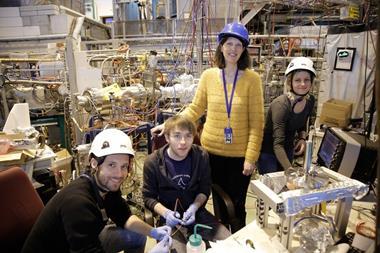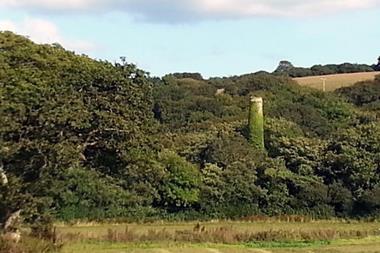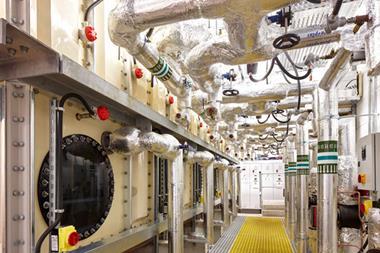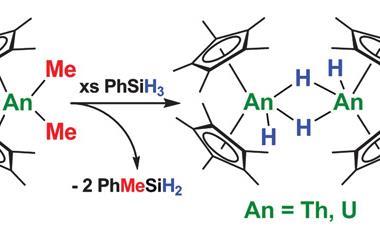Critical nuclear know-how is dwindling as the younger generation avoid this vital field
There is a serious lack of radiochemistry expertise in many parts of the world, including Europe, Australia and the US, experts warned at the centennial meeting of the Royal Australian Chemical Institute (RACI) held in Melbourne, Australia. Gabriele Voigt, the former director of the International Atomic Energy Agency’s (IAEA) Office of Safeguards Analytical Services, cautioned that the situation in Europe, and in Germany in particular, is bad.
Voigt, who has become a consultant since leaving the IAEA, points out that the University of Hannover is the only institute in Germany where students can pursue radiochemistry. Voigt recalled that when she was at the IAEA, an international search for a good radiochemist took about three years.
As the Chernobyl accident was over three decades ago, and the Fukushima accident of 2011 wasn’t a huge new event in Europe, the cadre of radioecology students has dwindled, according to Voigt. ‘This will really have an impact, because people of my age die out and there is a big gap now,’ she said. But this expertise is needed because many countries – including Saudi Arabia, China and the United Arab Emirates – are ramping up nuclear power production. In addition, Voigt said, this radiochemical expertise is required in Europe and elsewhere for nuclear decommissioning and waste management, and also for global warming research and radiation protection.
‘We don’t know’
‘Some radionucleotides might become bioavailable, there is always the suspicion that there are leakages and a flow into the groundwater or evaporation into the air,’ Voigt explained. ‘We don’t know, and so we need experts.’ She tells Chemistry World that there is currently ‘just a handful of sound radiochemists’ in Germany, and most of them are already well-established in their institutes, which do everything they can to retain them. In the meantime, the pipeline for radiochemists has virtually dried up.
The situation in the US is not much better, according to David Fauth, a consultant in the field who is a member of a US committee that has worked on environmental radiochemistry laboratory standards. He notes that there are around five universities in the US that have radiochemistry programmes.
Fauth says the lack of interest in radiochemistry in the US stems from fewer test reactor facilities, the difficulty in maintaining a radiochemistry training facility, anti-nuclear activists and insufficient support from the US Department of Energy, whose facilities provided many in the country’s radiochemical community with on-the-job training.
Timothy Payne, principal research scientist at the Australian Nuclear Science and Technology Organisation (ANSTO), says the picture in Australia is gloomy as well. ‘For some young people, radiochemistry doesn’t seem to be an attractive career because radioactivity in itself is viewed with suspicion and fear,’ he says. ‘There can also be a perception that the significant achievements in the field occurred a long time ago, in the days of Marie Curie or Ernest Rutherford.’
In addition, Payne says the phase-out of nuclear power in countries like Germany has led to a perception on the part of young people that it is ‘something of a dead end’ career.
Generational divide
Rachel Popelka-Filcoff, an associate professor of radioanalytical chemistry at Flinders University, Australia, agrees. ‘There is an older generation that is moving on, and there isn’t necessary a younger generation following in as great numbers,’ she says. ‘It is a problem in Europe, and it is a problem internationally as well.’
She cautions that although Australia has some of the newest facilities for carrying out radiochemistry and nuclear chemistry – including ANSTO’s Opal research reactor and the Australian Synchrotron – the continent may not be able to capitalise on this capacity because of a lack of staff who can ‘really push the boundaries of science’.
Although Australia doesn’t have nuclear power or nuclear weapons, there are still sites on the continent where nuclear research matters. These include uranium mines, former British nuclear test sites and anything to do with the past and present operations of the nuclear facility at ANSTO. ‘Here in Australia, what is important for us is uranium mining – understanding all of the implications of that, like radiation in the environment – as well as using radiation techniques for understanding the environment and climate change,’ Popelka-Filcoff explains.
Chernobyl and Fukushima both underline the importance of being prepared for a radiation-related emergency, the radiochemists gathered at the RACI meeting stressed. ‘In those cases, when there was a sudden need for a large number of samples to be analysed, the capability wasn’t necessarily there,’ Payne says. Even Japan – which has quite an advanced capability – wasn’t ready for the huge number of samples, and the enormous amount of public interest that was suddenly generated by Fukushima, he notes.
‘There are many challenges ahead, which means that we need people in this field,’ Voigt said. ‘There are job opportunities because radioecologists will be needed more than ever – my hope is that this discipline will survive, and will also prosper.’

















No comments yet